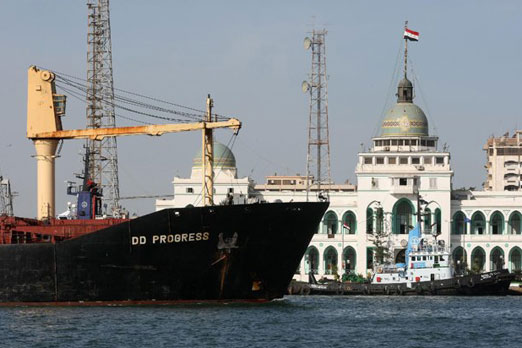President Abdel Fattah Al-Sisi acknowledged Egypt’s persistent struggle with the US dollar on Wednesday, attributing it to a structural imbalance between dollar-denominated expenses and Egyptian pound earnings.
Addressing a ceremony marking Police Day, he vowed to tackle the crisis but stressed the need for national solidarity.
“The dollar is always a problem for Egypt every few years,” Al-Sisi admitted. “I provide services and sell them to people in Egyptian pounds, but I get them in dollars.” He cited the billion-dollar monthly costs of essential imports, fuel, and power plant gas, highlighting the strain on Egypt’s foreign currency reserves.
“Egypt needs $1bn per month for basic food imports,” Al-Sisi indicated.
The president lamented the economic repercussions of past events, noting a $450bn loss between 2011 and 2013 and an EGP 120bn Egyptian expense in combating terrorism.
He expressed empathy for citizens enduring hardships, acknowledging the complexity of international and regional factors compounding Egypt’s economic woes.
However, Al-Sisi emphasized optimism, stating, “The current crisis has solutions, but they depend on all of us.” He emphasized the need to bridge the gap between dollar revenues and expenditures, stressing, “If our dollar resources do not equal our spending in Egypt, the dollar problem will remain.”
Recognizing the importance of collective action, Al-Sisi called for a deeper national dialogue on the economy, seeking citizens’ engagement in finding solutions. He expressed sincere appreciation for the resilience of Egyptians amid economic pressures and reiterated his respect for “everyone, especially the simple and poor citizens.”
Beyond the internal struggle, Al-Sisi addressed the external threats impacting Egypt’s economy. He noted the country’s growing vulnerability to tensions in the Red Sea and assured that Egypt played no part in hindering aid access to the Gaza Strip. He attributed the disruption to Israeli measures aimed at pressuring the region.
Egypt’s chronic dollar shortage, exacerbated by regional instability, presents a formidable challenge. The Egyptian pound remains under pressure, despite hefty interventions from the central bank and the banking system, according to an analysis from Bloomberg Economics.
The report, published on August 1, 2023, suggests the currency would have depreciated even further without these efforts.
The pound has shed nearly half its value against the US dollar since March 2022, reflecting a confluence of economic pressures. Egypt, like many nations, is grappling with the fallout from the Ukraine war, including higher energy and food import costs.
Additionally, the country’s reliance on tourism revenue has been hampered by global travel disruptions.




